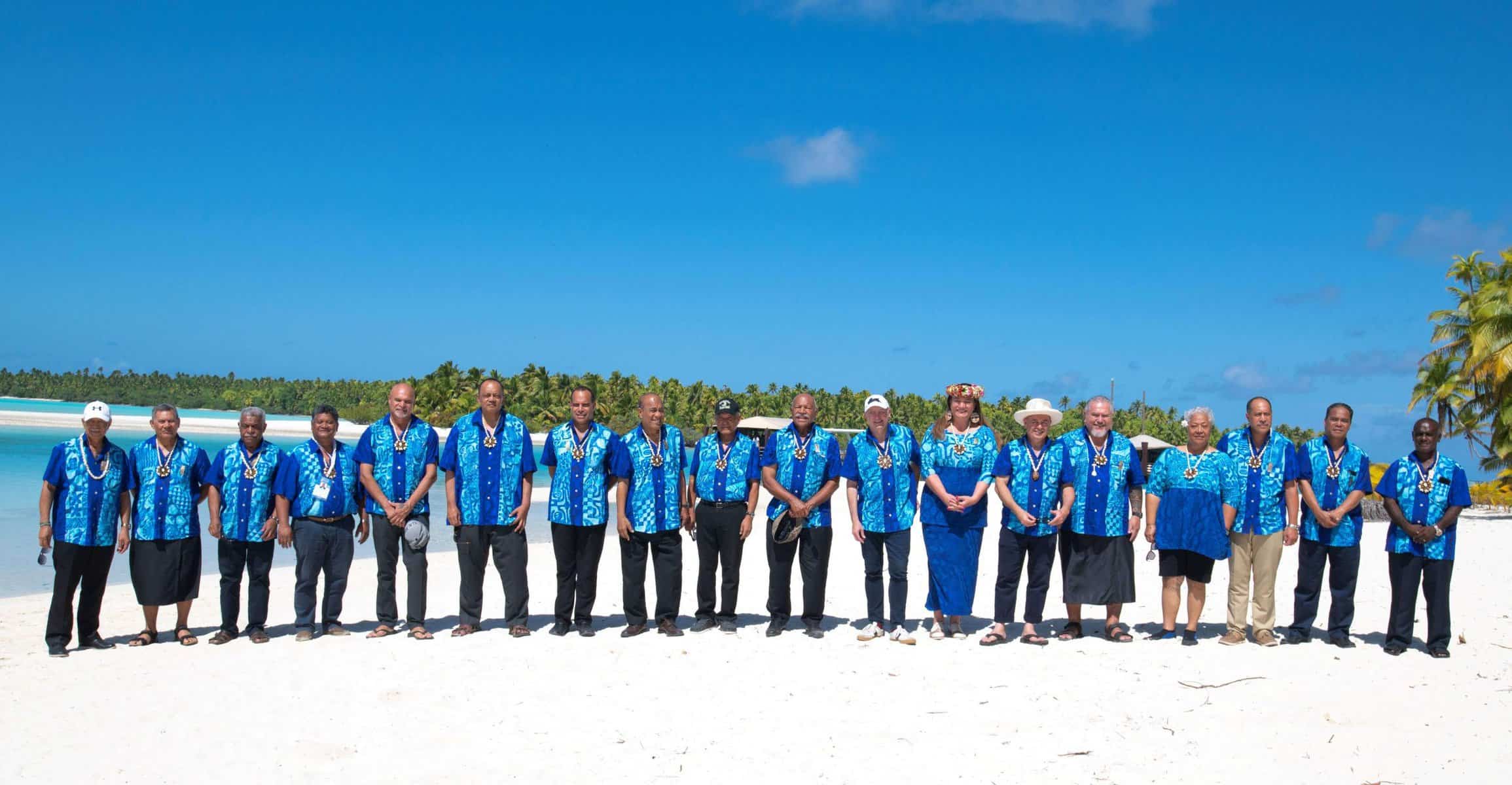As Foreign Minister of Ghana, I do get around a fair bit. Often, I’m immersed in briefing papers on flights, with little to no time for looking out the window to take in the aerial sights on the approach to destinations. Not so this time; not on my recent first flight to the stunning Cook Islands. Enough of briefing papers! I’d flown far and long enough – 17,216 km and nearly 30 hours – to have read “Poor Fellow My Country”, Australian novelist Xavier Herbert’s 1,463-page award-winning tome, twice over. So I’ll take in the views.
And how scenic the aerial vistas of Rarotonga, the 67 square km island in the Pacific Ocean that seats Cook Islands’ capital, Avarua. The green peaks of Mount Te Manga reach out as if to receive and cushion the approaching aircraft to landing. The surf resembles a white lace embroidery stitched between the turquoise ocean and beckoning beaches with their fluttering coconut fronds that so remind me of my own coastal home of Accra, Ghana. I couldn’t wait to land and meet the people, in their ’ei katu (garlands), and experience their famed warmth, kindness and grace. This is paradise.
Or is it?
Climate change is threatening the Cook Islands, a nation of 17,000 people on 15 islands. It is one of 18 countries that belong to the Pacific Island Forum, the regional organisation for whom the Blue Pacific Continent is home. The Forum includes developed countries like Australia and New Zealand as well as developing, small and profoundly climate-vulnerable ones too, such as Fiji, Vanuatu, Tuvalu, Samoa, Nauru, Solomon Islands, Palau and Tonga. Eleven of them belong to the Commonwealth. The Commonwealth has the world’s greatest vulnerability to Climate Change. 32 of its 56 members are small states. Extreme weather events annually wipe out infrastructure and food sources and threaten the ecology and human lives.
Take Kiribati, an island nation measuring 118 sq km, with a population of approximately 128,000 people. Its highest elevation is no higher than two metres above sea level. Its citizens build protective walls with coral reefs, as stones are scarce, to protect their homes and families. The government has been compelled to buy land 3,400 km away in Fiji where i-Kiribati or Gilbertese, as its citizens are called, might be relocated should their island-home become uninhabitable because of rising sea levels. Nowhere in the world are the seismic and idevastating effects of climate change more evident than in the small, beautiful Pacific Island nations.
In many ways, African and Pacific Island Countries face similar climate concerns. The impact of greenhouse emissions on us is vastly disproportionate to our contribution to it. Pacific Island and African countries respectively account for 0.03% and 4% of global emissions. Yet, the existential threat to our countries and peoples is not abstract and unfathomable inside a distant century. It is here. Now. It manifests in floods, cyclones, typhoons, tidal waves, droughts and wildfires. Pacific Island Countries would need US$1 billion annually, constituting 6.5-9% of regional GDP for their climate financing needs. Africa needs US$580 billion by 2030 for its adaptation financing needs alone. This is daunting!
And that’s not all. Our common story is made even more grave by multilateral trading and financial systems which were established when we were colonies. Today, as independent nations, we have limited global trade footprints and much higher interest terms when borrowing on the international markets. The share of Pacific Island Countries and African countries in world trade are manifestly below potential at 0.03% and 3%, respectively. We are operating at the periphery of the global financial and trading systems.
But we can beat the odds. We can do so by leveraging our membership of the Commonwealth with its combined population of 2.4 billion people and US$14.5 trillion GDP, with an estimated cumulative wealth of US$150 trillion. Twenty-one of 55 African countries, including Nigeria and South Africa, the continent’s two largest economies, are members of the Commonwealth.
The UK has reached bilateral free trade agreements with Australia, New Zealand and several Commonwealth member countries, and is in negotiations with India and Canada to do the same. These bilateral trade deals point to one logical conclusion: A single Commonwealth-wide Free Trade Agreement (“One Commonwealth”) is a sensible thing to do. It is due and urgent.
Such a pact must respond to the needs of developing economies, with significant scaling up of ‘Aid for Trade’ disbursements to enhance their productive and value-addition capacity. This is particularly critical as a strategy for job creation for young people in developing member-countries, to give them hope at home, and stem disorderly and illegal migration to richer parts of the Commonwealth.
Complimentary to this, we must have a labour mobility compact – including seasonal worker programs which create win-win opportunities for Commonwealth citizens with skills, and employers who desperately need them. Combined with online technology, we can create a Commonwealth market which provides the option of virtual work and services across borders. The mutual cultural benefits across geographies would be incalculable – the kind the world desperately needs today. Yes, we have a common colonial past, but we have distinct indigenous histories and cultures we can and must share.
To end, I must return to the start: we must salvage and protect the most vulnerable countries on the planet. The expectations of small island developing states must be the barometer of our goal and the well-being of our planet. That’s why I am committed to the ambitious Net-Zero Target for greenhouse emissions by 2030. The Commonwealth must invoke its enormous heft as a champion of small island and other vulnerable territories elsewhere, while creating sustainable economies for all who belong to and live in it.
Yes. The Commonwealth can save paradise.
Shirley A. Botchwey is the current Foreign Minister of Ghana.
The opinions expressed in this article are those of the author and do not necessarily reflect the opinions of this publication.
